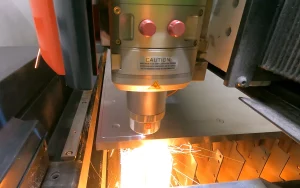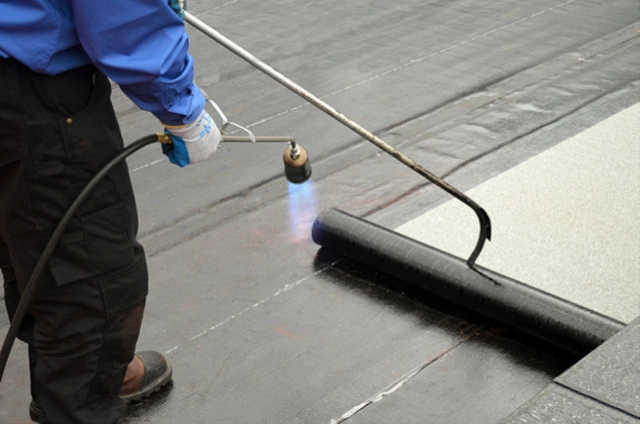In the metal fabrication industry, the physical strain of metal forming tasks can impact employees’ well-being and productivity. However, the integration of heavy-duty metal forming tools designed with ergonomics in mind can make a significant difference. By emphasizing safety and comfort, these specialized tools can minimize injury risks and alleviate operator fatigue. Exploring the advantages of heavy-duty metal-forming tools highlights the importance of prioritizing employee health as a crucial business strategy. What sets these tools apart in effectiveness, and how can organizations leverage their potential for a healthier workforce?
Key Takeaways
- Ergonomic design in heavy-duty metal-forming tools reduces physical strain, operator fatigue, and discomfort, promoting employee well-being.
- Specialized tools with advanced features boost productivity, streamline operations, and reduce cycle times, leading to improved efficiency.
- Heavy-duty metal forming tools with safety-focused designs decrease the risk of accidents, injuries, and musculoskeletal disorders, creating a safer work environment.
- Dependable heavy-duty tools minimize manual manipulation challenges, reducing tiredness and musculoskeletal ailments, and improving overall employee experience.
- Integrating ergonomic principles in heavy-duty tools lessens the risk of musculoskeletal disorders, enhancing operator comfort and reducing physical demands.
Challenges in The Metal Fabrication Industry
In the metal manufacturing sector, where accuracy and effectiveness are crucial, the lack of dependable heavy-duty metal shaping equipment can cause a range of difficulties that can hinder efficiency and jeopardize employee well-being. Without these tools, metalworkers may face challenges with manual manipulation, leading to tiredness and musculoskeletal ailments. This, in turn, can lead to decreased motivation, increased absences, and higher worker’s compensation claims.
Ergonomic Design of Heavy-Duty Tools
The ergonomic layout of heavy-duty metal shaping instruments plays a critical role in lessening the physical strain associated with manual metal fabrication processes. By incorporating ergonomic principles, heavy-duty metal forming tools can be designed to decrease operator fatigue, discomfort, and injury. This leads to enhanced productivity and efficiency, ultimately improving the overall employee experience.
Reducing Musculoskeletal Disorders Risk
The strategic integration of ergonomic principles in heavy-duty metal forming options not only enhances operator comfort but also plays an essential role in mitigating the risk of musculoskeletal disorders. By incorporating ergonomic design elements, Heavy-Duty Metal Forming Tools can reduce the physical demands on operators, minimizing the likelihood of musculoskeletal injuries and disorders.
Improving Workplace Safety Standards
The strategic implementation of heavy-duty metal shaping tools with built-in safety features can significantly boost workplace safety standards by decreasing the risk of accidents and injuries. By incorporating Heavy-Duty Metal Forming options with safety-focused designs, organizations can create a safer work environment, reducing the likelihood of workplace hazards and promoting a culture of safety excellence.
Boosting Productivity With Specialized Tools
Often, the strategic integration of Heavy-Duty Metal Forming Tools with advanced features plays an essential role in promoting a significant increase in productivity, allowing organizations to meet deadlines and optimize their metal fabrication processes. By utilizing specialized tools, manufacturers can streamline operations, reduce cycle times, and improve overall efficiency, ultimately leading to improved productivity and competitiveness in the industry.

Frequently Asked Questions
How Do Heavy-Duty Metal-Forming Tools Impact Employee Mental Health?
The impact of heavy-duty metal-forming tools on employee mental health is often overlooked, yet it can lead to increased stress, anxiety, and fatigue because of the physically demanding nature of the work.
Can Specialized Tools Reduce Worker Fatigue in Manufacturing?
Specialized tools can significantly reduce worker fatigue in manufacturing by minimizing physical exertion, optimizing workflow, and promoting ergonomic design, ultimately leading to improved productivity and enhanced overall well-being.
Do Ergonomic Tool Designs Improve Overall Workplace Morale?
Ergonomic tool designs significantly enhance overall workplace morale by reducing discomfort, fatigue, and injuries, promoting a positive work environment, and enhancing job satisfaction, ultimately boosting productivity and employee well-being.
What Role Do Heavy-Duty Metal Forming Tools Play in Employee Retention?
Employee retention is significantly influenced by the provision of heavy-duty metal forming tools, as they improve job satisfaction, reduce fatigue, and cultivate a sense of accomplishment, ultimately nurturing a positive work environment.
Can Heavy-Duty Tools Be Adapted for Employees With Disabilities?
Yes, robust tools can be adapted for employees with disabilities through ergonomic design modifications, assistive technology integrations, and customizable features, promoting inclusive workplaces and equal opportunities for all employees.
Conclusion
To summarize, the integration of ergonomic design principles in heavy-duty metal forming tools has been shown to alleviate the risk of musculoskeletal disorders and improve employee health in the metal fabrication industry. By prioritizing safety features and ergonomic considerations, organizations can establish a safer work environment, increase productivity, and foster a culture of safety excellence. This approach ultimately contributes to enhanced overall well-being and efficiency in the industry.
You May Also Like:


